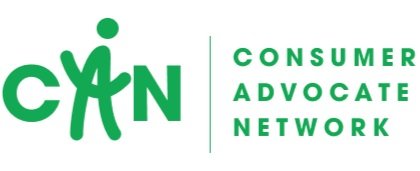Remembering Effie Smith
On Friday, September 11, 2020, Ethel “Effie” Louise Jones Smith, Founder and executive Director of Consumer Action Network (CAN) and stalwart advocate in the Washington DC mental and behavioral health community, passed away at the age of 82. Effie was born on March 31, 1938 in Anderson County, South Carolina.
She was the daughter of the late Bessie Jones Smith and Elijah Traymon, and was raised and adopted by David Smith. From an early age, Ethel was a member of the Mountain Springs Baptist Church. She graduated from Spearman Public High School in 1957, during which time she cleaned houses and babysat. After graduation, she worked at Martin’s Manufactory, where she quickly realized that type of work was not for her. She was ready to move on and “get out of dodge.”
“Aunt Bubba,” as Effie was affectionately known by her family, relocated to Charlotte, NC to attend beauty school. Again, she determined that cosmetology was not her calling, and she moved to Washington, DC, a city that she first visited on her high school senior trip. It was the late 60s, and she pursued opportunities in television broadcasting and freelance photography. During this stage of her life, Ethel began to be known as Effie to all whom she met personally and professionally.
Effie’s passionate advocacy for mental health formally started with her membership in the Dixon stakeholder group in 1999, where she lent her skills to design protocols for monitoring DC mental health system performance. Over the last two decades, Effie was a powerful force for collaboration and change, offering her expertise and insights to the DC Department of Behavioral Health in multiple ways to improve mental health services, including serving on the Directors’ Partnership Council, the Mental Health Block Grant Planning Council, and the St. Elizabeth’s Performance Improvement Initiative.
She held positions in a large number of DC-based mental health policy committees, boards, task forces, and teams, and approached each one of the opportunities with the passion and vigor that became her trademark. She served on President Obama’s Transition Team for Disabilities in 2008, on the Board of Directors of the Washington Legal Clinic for the Homeless, as a member of the Advisory Council for the Protection and Advocacy for Individuals with Mental Illness program, and many other organizations.
In 2002, Effie worked with her collaborators, Mary Blake and Mary Hathaway, to launch a new not-for-profit organization called Consumer Action Network. Incorporated in 2003, CAN serves as a vehicle through which individuals receiving mental health services and their families can be heard and engage in self-advocacy, employment, and self-directed, person centered care. After its launch, the organization has become a major force in bringing the concepts of recovery, empowerment, and self-directed care to consumers, family members, service providers, and policy-makers across DC. CAN was Effie’s passion, and she dedicated herself fully to the vision and mission for 17 years. In 2006 and 2007, CAN received the Timothy Coakley Leadership Award from the American College of Mental Health Program Administrators for it’s work to promote entrepreneurship opportunities for individuals with psychiatric disabilities.
Under Effie’s leadership, CAN Developed opportunities for engaging on issues related to homelessness and for hiring individuals experiencing homelessness. Effie also spearheaded efforts to address the needs of women with histories of trauma, substance abuse, and mental health challenges who were incarcerated in the DC jail. Similarly, Effie led much of CAN’s work to promote recovery, self-advocacy, and and empowerment of individuals receiving health care at St. Elizabeth’s Hospital.
She assisted in the development of the hospital’s Patient Advisory Group and the Department of Behavioral Health’s Transition Planning Team to facilitate the transition of patients to community based care. Despite the time commitments required by her leadership of CAN, and her engagement on countless boards and committees, Effie was always available to individuals who called upon her for assistance and support. She went out of her way to meet people where they were in their struggles, providing everything from a much-needed hug to advice on how to draft a letter to the President requesting disability assistance for a veteran. Her tireless efforts to improve service quality and to promote new opportunities for empowerment and recovery have left an indelible mark on DC. She will be greatly missed.
